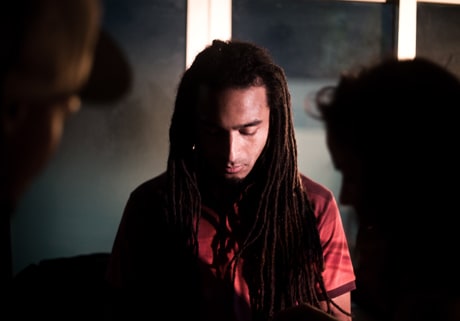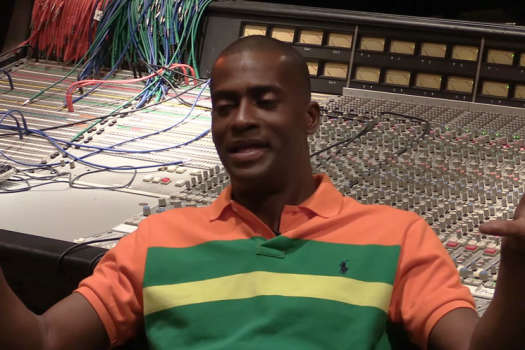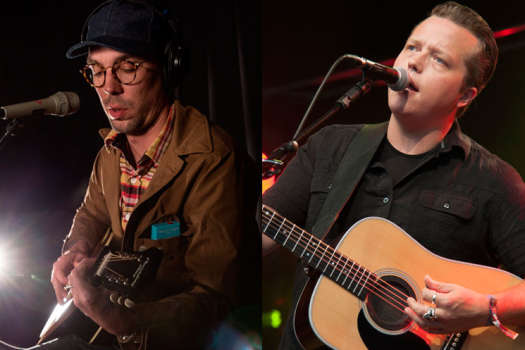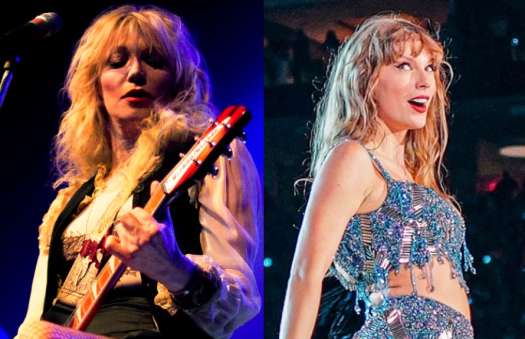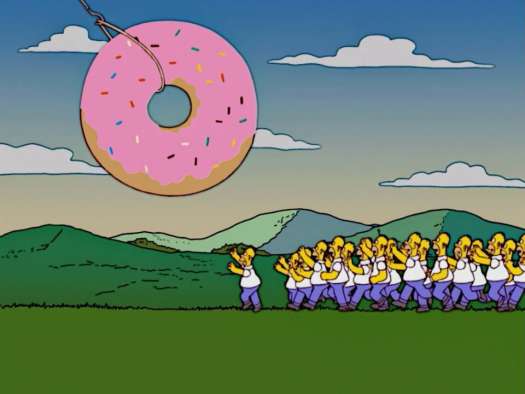To listen to Mala In Cuba with the knowledge that it's the product of one of the godfathers of dubstep is to realize how the genre has changed in the last ten years. The product of a life-changing journey to Cuba, in conjunction with Gilles Peterson's Havana Cultura project, this contains no wobbly bass or centrifugal breakdowns. It is the best electronic extrapolation of the beauty and subtlety of one of the world's great rhythm nations since Bill Laswell's Imaginary Cuba almost 15 years ago. Mala In Cuba treads familiar ground, process-wise, by stitching up disconnected samples of live jams, but succeeds entirely on the basis of Mala's finely developed personal sense of groove. It's impossible not to move while listening to this record. "Changuito" takes all that is wonderful, dynamic and polyrhythmic about master percussionists and marries it to a subsonic bass that welcomes rather than assaults the listener. Less furious tracks like "Como Como" have a chilled vibe that never comes close to the stasis of trip-hop. Best of all, this sounds like the kind of rhythmic experimentation modern-day Cuban artists seek to achieve, so this is no mere trip to an all-inclusive rhythm resort.
Have you always been interested in Cuban music? What sets that island's rhythms apart from other sounds in Latin American music?
Before this project I knew pretty much nothing about Cuba, culture and music. So my eyes, ears and mind were open to new rhythms, colours and textures.
How did the trip come about?
Gilles Peterson has been working with Havana Cultura, making records and compilations to bring through new Cuban musicians. He was asked to go again 2011 he thought about making the project a little different. Luckily for me, he asked me to join him.
Did you have a battle plan for how to compose when you got there? Were there certain musical elements you were looking for?
We went to Cuba with no plan or concept other than to meet and work with musician make an album. I never have a plan, especially not with creation. I'm not that kind of person. When I make music I go with what feels right at the given moment. For me, creation about freedom.
How did you organize the sessions, or did it come together spontaneously?
Roberto Fonseca and his band recorded the main session. They recorded so many different traditional Cuban rhythms for me. I asked them to play at a certain tempo and in some cases a certain time signature. With the recordings, I took them to my studio, stripped it down and rebuilt it. A few musicians came into the studio I was in and just recorded over music I had been making for the album. "Changuito" is an example of that. So is "Calle F." I met the trumpet player at house party in Havana while I was playing a set. He asked to play over the music. I thought he was wanting to MC or sing or rap but he pulled out his trumpet and started playing. He sounded so good over "Lean Fwd" (a track of mine I was playing at the time). So Gilles and I asked him to come studio the next day to record. Eleven a.m. he arrived as requested and the recordings were made.
Others have tried to remix and reconfigure Cuban music over the years from Bill Laswell to Buena Vista Social Club side projects. Were there certain strategies you embraced or avoided?
The only thing I had in my mind is that I wanted to respect the musicians and what they shared with me. They were so open with their music, energy and culture. I'm not Cuban nor am I a classically trained musician, so I had to bring my abstract world to theirs.
When you started piecing together the final product were you concerned about your fans'/UK bass lovers' reactions to what was evolving? Mala In Cuba is somewhat different than the rest of your repertoire.
No. I don't mean that in a confident or arrogant way. I mean, when I make music, I am usually alone in the studio, so I create music based on my own tastes. Despite the approach being different, its frequency design is still sound system. That's just my way. At the end I just felt pleased I was able to start and finish enough music to make an album. I was pleased with what had created. Only when I feel this way can I share it with everyone. I hope people enjoy it, but as they say you can't please everyone.
How would you describe the final result? Has this experience changed your music and life forever?
It's like going into a jungle to explore. You voyage into the unknown, discovering many things new things about yourself, about others, about music and life as a whole. On these types of adventures you never come out the way you went in. I was truly grateful for the experience. Giving thanks.
Have you always been interested in Cuban music? What sets that island's rhythms apart from other sounds in Latin American music?
Before this project I knew pretty much nothing about Cuba, culture and music. So my eyes, ears and mind were open to new rhythms, colours and textures.
How did the trip come about?
Gilles Peterson has been working with Havana Cultura, making records and compilations to bring through new Cuban musicians. He was asked to go again 2011 he thought about making the project a little different. Luckily for me, he asked me to join him.
Did you have a battle plan for how to compose when you got there? Were there certain musical elements you were looking for?
We went to Cuba with no plan or concept other than to meet and work with musician make an album. I never have a plan, especially not with creation. I'm not that kind of person. When I make music I go with what feels right at the given moment. For me, creation about freedom.
How did you organize the sessions, or did it come together spontaneously?
Roberto Fonseca and his band recorded the main session. They recorded so many different traditional Cuban rhythms for me. I asked them to play at a certain tempo and in some cases a certain time signature. With the recordings, I took them to my studio, stripped it down and rebuilt it. A few musicians came into the studio I was in and just recorded over music I had been making for the album. "Changuito" is an example of that. So is "Calle F." I met the trumpet player at house party in Havana while I was playing a set. He asked to play over the music. I thought he was wanting to MC or sing or rap but he pulled out his trumpet and started playing. He sounded so good over "Lean Fwd" (a track of mine I was playing at the time). So Gilles and I asked him to come studio the next day to record. Eleven a.m. he arrived as requested and the recordings were made.
Others have tried to remix and reconfigure Cuban music over the years from Bill Laswell to Buena Vista Social Club side projects. Were there certain strategies you embraced or avoided?
The only thing I had in my mind is that I wanted to respect the musicians and what they shared with me. They were so open with their music, energy and culture. I'm not Cuban nor am I a classically trained musician, so I had to bring my abstract world to theirs.
When you started piecing together the final product were you concerned about your fans'/UK bass lovers' reactions to what was evolving? Mala In Cuba is somewhat different than the rest of your repertoire.
No. I don't mean that in a confident or arrogant way. I mean, when I make music, I am usually alone in the studio, so I create music based on my own tastes. Despite the approach being different, its frequency design is still sound system. That's just my way. At the end I just felt pleased I was able to start and finish enough music to make an album. I was pleased with what had created. Only when I feel this way can I share it with everyone. I hope people enjoy it, but as they say you can't please everyone.
How would you describe the final result? Has this experience changed your music and life forever?
It's like going into a jungle to explore. You voyage into the unknown, discovering many things new things about yourself, about others, about music and life as a whole. On these types of adventures you never come out the way you went in. I was truly grateful for the experience. Giving thanks.
